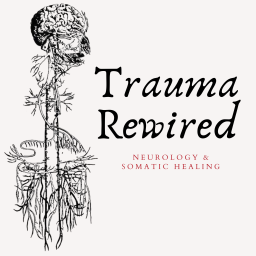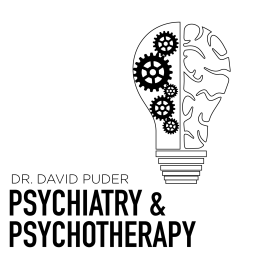
by Dr. Dawn-Elise Snipes
Counselors, coaches and sober companions help hundreds of thousands of people affected by Addictions and Mental Health issues each year. Learn about the current research and practical counseling tools to improve your skills and provide the best possible services. Counselor Toolbox targets counselors, coaches and companions, but can also provide useful counseling self-help tools for persons struggling with these issues and their loved ones. AllCEUs is an approved counseling continuing education provider for addiction and mental health counselors in most states. Counseling CEUs are available for each episode.
Language
🇺🇲
Publishing Since
5/30/2016
Email Addresses
1 available
Phone Numbers
0 available

March 25, 2025
Dr. David Snipes discusses the psychological abuse of parental alienation, its long-term effects, and therapeutic interventions for healing.

March 20, 2025
Dr. Benjamin E. Caldwell, known as DocSnipes, explores how defensiveness hinders active listening and offers strategies to overcome it.

March 18, 2025
Understanding Psychodynamics and Safety The presentation begins with a focus on psychodynamics, particularly how early experiences of trauma impact one’s sense of safety. Trauma can manifest in emotional, physical, and cognitive symptoms that disrupt everyday life, relationships, and well-being. Effects of Trauma on Health Trauma increases inflammation, disrupts sleep, and contributes to autoimmune disorders. Chronic feelings of unsafety can result in a constant state of hypervigilance, impacting both physical and emotional health. Identifying Unsafe Feelings Individuals can feel unsafe in various domains, including physical, interpersonal, and emotional. Feelings of vulnerability can arise from numerous contexts, like work, home, or social settings. Emotional vulnerability includes situations where individuals fear rejection or criticism, impacting their ability to feel secure. The Role of the Inner Critic People often internalize negative messages from others, leading to an overactive inner critic. Helping clients examine these internalized messages and their origins can improve emotional resilience and self-compassion. Effects of ADHD and Other Disorders Conditions such as ADHD, when undiagnosed, can lead to feelings of rejection and criticism, further contributing to trauma. Mental health issues can both cause and result from trauma, creating a cycle of unsafety and helplessness. Physical and Cognitive Symptoms of Trauma Trauma can lead to physical symptoms like GI distress and increased pain sensitivity due to heightened nervous system activity. Cognitive symptoms include difficulties with concentration, decision-making, and distinguishing between past and present threats. Mindfulness and Safety Strategies Mindfulness and grounding techniques help individuals differentiate between past trauma and present safety. Creating a safe physical and emotional environment is essential for reducing trauma-related stress responses. The Importance of Boundaries Setting and maintaining healthy physical, emotional, and interpersonal boundaries is crucial for trauma survivors to feel safe. Recognizing and moderating triggers in various environments (work, home, relationships) helps reduce feelings of unsafety. Interpersonal Relationships Trauma can lead to difficulties in trusting others or feeling secure in relationships. People may develop coping mechanisms like clinginess or avoidance. Rebuilding trust in oneself and others is a key aspect of trauma recovery. Rewiring the Nervous System Healing from trauma involves retraining the nervous system to feel safe in previously triggering situations. Techniques like vagus nerve stimulation, slow breathing, and relaxation exercises can help reduce hypervigilance and anxiety. Learn more about your ad choices. Visit megaphone.fm/adchoices

Laura Reagan, LCSW-C

Curt Widhalm, LMFT and Katie Vernoy, LMFT

Guy Crawford Macpherson

Ken Kelly and Rory Lees-Oakes

Rick Hanson, Ph.D., Forrest Hanson

Dr. Corey J. Nigro

The Knowledge Center

Debbie Sorensen, Jill Stoddard, Yael Schonbrun, Michael Herold & Emily Edlynn

Jennifer Wallace & Elisabeth Kristof

Clearly Clinical

Kina Penelope

David Puder, M.D.

Therapy in a Nutshell -Emma McAdam

Shane Birkel
Pod Engine is not affiliated with, endorsed by, or officially connected with any of the podcasts displayed on this platform. We operate independently as a podcast discovery and analytics service.
All podcast artwork, thumbnails, and content displayed on this page are the property of their respective owners and are protected by applicable copyright laws. This includes, but is not limited to, podcast cover art, episode artwork, show descriptions, episode titles, transcripts, audio snippets, and any other content originating from the podcast creators or their licensors.
We display this content under fair use principles and/or implied license for the purpose of podcast discovery, information, and commentary. We make no claim of ownership over any podcast content, artwork, or related materials shown on this platform. All trademarks, service marks, and trade names are the property of their respective owners.
While we strive to ensure all content usage is properly authorized, if you are a rights holder and believe your content is being used inappropriately or without proper authorization, please contact us immediately at [email protected] for prompt review and appropriate action, which may include content removal or proper attribution.
By accessing and using this platform, you acknowledge and agree to respect all applicable copyright laws and intellectual property rights of content owners. Any unauthorized reproduction, distribution, or commercial use of the content displayed on this platform is strictly prohibited.